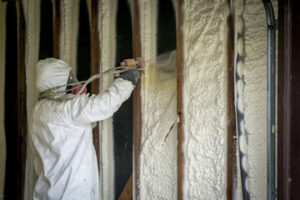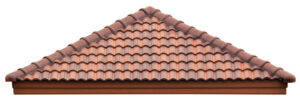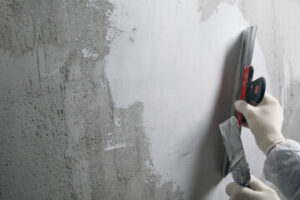Insulation Removal Perth is an important home improvement project that enhances indoor air quality. It also allows for new insulation to be installed, reducing energy bills and improving comfort levels.

Proper insulation removal requires specific methods and precautions to ensure safety and efficiency. This article will cover the basics of preparing, removing, and disposing of old insulation.
When it comes to Insulation Removal, safety is a critical part of the process. Old insulation can contain hazardous materials like asbestos and mold, as well as irritants such as dust and allergens. Hiring a professional team ensures that the work is done safely and properly, protecting both your property and your health.
The first step is to assess the insulation and determine the best method for removal. In most cases, professionals will use a negative air machine with HEPA filters to trap dust and debris as it is removed, ensuring that the air you breathe is clean and healthy. The professional may also wet down the insulation to minimize the amount of fibers that are released into the air.
Depending on the type of insulation, professionals will use different techniques to remove it. For compact materials, such as batt or rolled fiberglass or cellulose insulation, they will cut the material into smaller pieces that can be easily handled. Loose-fill insulation, on the other hand, is often vacuumed up using a high-powered vacuum cleaner.
Before beginning the insulation removal, it is important to clear out any items stored in the attic and create a safe workspace. This includes removing any personal belongings and sealing off vents to prevent the spread of allergens. It is also essential to turn off the power and disconnect any live wires in the attic to reduce the risk of fire hazards.
In addition to enhancing indoor air quality, a thorough Insulation Removal will help to reduce energy bills and improve home comfort. It is also essential to address any leaks in the roof or plumbing to avoid water damage, which can saturate the insulation and cause it to degrade faster. In addition, it is crucial to remove pest infestations before insulation replacement is initiated to prevent rodents from nesting in the new material.
When hiring a professional team for the job, it is vital to ask about their credentials and experience. Make sure that they are insured and licensed to perform the work, as well as familiar with local regulations regarding waste disposal. It is also a good idea to get multiple quotes for the service to ensure that you are getting the best value and highest-quality work.
Preparation
Insulation removal is a labor-intensive process that requires extensive preparation to ensure safe and efficient results. It is important to make sure that the work area is clear of clutter and that proper ventilation is set up. Additionally, it is essential to equip yourself with the appropriate safety gear and tools. This includes a respirator mask with a proper filter, disposable coveralls, gloves, and eye protection. This equipment protects the individual from insulation fibers, dust, and irritants that may cause skin irritation or respiratory problems.
It is also critical to identify the type of insulation installed in the attic and its condition. This helps determine the most suitable method for removal and may also help discover mold or pest infestation that should be addressed before proceeding. In addition, knowing the insulation type can help plan the removal process and determine the best tools and disposal methods.
If the insulation is in the form of fiberglass batts, it is recommended that they be rolled up as they are removed to minimize the release of fibers. This makes them easier to handle and will also facilitate disposal. It is also advisable to use a heavy-duty waste bag during the removal process to contain any debris and keep it from spilling onto surfaces below.
Foam board insulation is more difficult to handle and requires a more specialized approach. This includes wearing the appropriate protective gear and using a utility knife or foam saw to cut through the insulation. It is also important to follow local disposal guidelines for this material, as it can be hazardous to the environment.
Before starting the actual removal process, it is necessary to turn off or disconnect any power sources in the attic. This will reduce the risk of accidentally cutting or harming any live wires in the ceiling and prevent potentially dangerous electrical shocks.
It is also important to make sure that the ladder or scaffolding used for accessing the attic is stable and in good working condition. It is also a good idea to have a second person on hand to provide support when needed and to assist with moving large sections of insulation.
Removal
Insulation removal is a demanding DIY project that requires adherence to strict safety measures. The first step is to clear the workspace and remove any personal belongings from the attic space. Then, create a path from the attic access to the door and wear protective gear such as gloves, safety goggles, dust masks, and long sleeves. This will protect you from insulation fibers, dust, and any potential allergens or irritants.
After the workspace is cleared, the next step is to identify what type of insulation you have and proceed accordingly. Cellulose insulation is typically loose, and a high-powered vacuum can be used to suck the material from the attic space and into heavy-duty garbage bags for disposal. Fiberglass insulation is typically rolled up and dropped in large garbage bags as well, but the process can be difficult, especially if you have a steep roof pitch.
Once the bags are filled, ensure that they are sealed tightly and transported via a trailer if necessary. This will prevent the transfer of unhealthy particles from the attic to the interior of your vehicle, making the entire process easier and more efficient.
One of the biggest reasons why old insulation should be removed is that it can harbor contaminants such as mold, mildew, and rodent droppings. These contaminants can contaminate the air and cause health problems for anyone living in the home. In addition, they can damage the structure of the home over time.
Energia’s experienced crews use specialized equipment to remove your insulation safely and efficiently. This includes a large, powerful vacuum that is fed into the attic through a hole drilled in the attic access panel. This allows the crew to suck out insulation without touching it, so there is no risk of contamination or further damage to your home. It also means that you can stay in the house while the insulation is being removed (as long as you don’t mind a continuous hum, similar to the noise of a lawnmower).
Insulation removal is an important step for maintaining comfort and energy efficiency in your home. Over time, the insulation in your attic can become compressed or damaged, and it will no longer be effective at preventing heat from escaping during the winter and cool air from entering during the summer. Replacing old insulation is an affordable way to improve your home’s energy efficiency and make it more comfortable.
Disposal
After removing old insulation, professionals must dispose of it according to local regulations. This may involve recycling or using designated facilities for disposal. Additionally, professionals will thoroughly clean and decontaminate the area to ensure that no hazardous materials are left behind. This can help prevent health and safety issues in the future.
Insulation disposal can be a complicated process that requires the right equipment and knowledge. If not handled properly, the material can cause a variety of health problems, including skin irritation and respiratory issues. Professionals will use specialized equipment and follow strict safety protocols to prevent contamination and exposure. This includes wetting down the material before removal to minimize airborne fibers. Additionally, they will seal off vents and cover any furniture or valuables to protect them.
It is also important to consider the environmental impact of disposing of insulation materials. Some services offer eco-friendly options, such as thermal recycling, which uses heat to break down the material and convert it into a reusable energy source. This reduces waste and environmental hazards, while also helping to save money on utility bills.
Some properties may still have asbestos-containing insulation materials, which require special disposal methods. These materials are typically sealed in containers and transported to specialized facilities for disposal. This is a dangerous and labor-intensive process that can only be performed by professionals trained in asbestos abatement.
Once the old insulation has been removed and disposed of, new material can be installed in the space. This will help regulate the temperature of the building, resulting in lower energy bills and greater comfort for occupants. Moreover, the new insulation can help to keep harmful contaminants out of the air and reduce the risk of mold and other health concerns.
When choosing a professional insulation removal service, be sure to consider their experience, proper equipment and tools, adherence to regulations, a detailed cleanup plan, and customer service. Ultimately, these factors can make the difference between a safe and successful project and a costly mistake that could put your family at risk. By following these tips, you can be confident that the insulation removal process will be completed correctly and safely.


